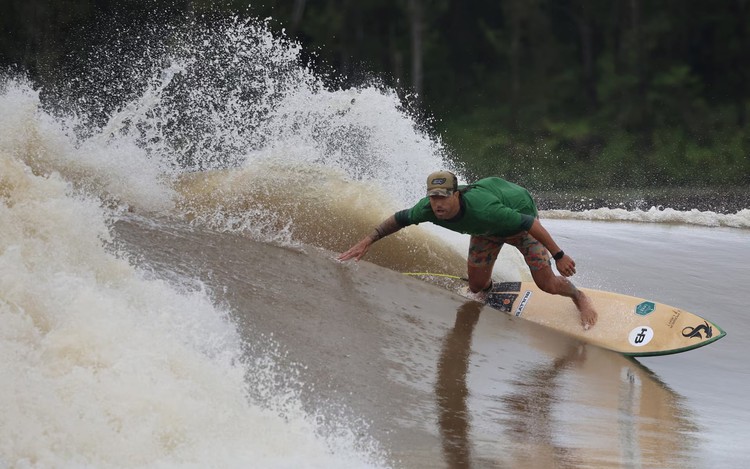
Brazilian surfer Sergio Laus rides the thunderous pororoca tidal bore wave on the Mearim River, in the Amazon jungle, near the northern Brazilian city of Arari of Maranhao state, Brazil April 29, 2025. Photo: Reuters
One early morning in late April, with a supermoon still in the sky, he trekked dozens of miles through the mud up the Mearim River, at the eastern tip of the Amazon, to surf the country's biggest remaining 'pororoca' and highlight the risk.
The two-meter-high muddy waves that formed as the river narrowed between the lush mangroves at the margins amazed him, as they always did.
"A wave breaks and dissolves," he said, of ocean waves. "This one just keeps gaining intensity. It's an Amazonian tsunami."
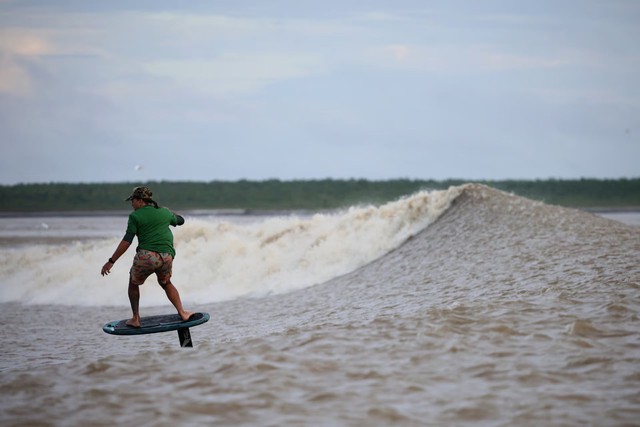
Brazilian surfer Sergio Laus rides the thunderous pororoca tidal bore wave on the Mearim River, in the Amazon jungle, near the northern Brazilian city of Arari of Maranhao state, Brazil April 28, 2025. Photo: Reuters
Yet the waves were about half the size of what he saw here years ago - and even smaller than the five-meter waves he says he used to ride in the Araguari River further west before erosion caused by agriculture and nearby dams dried up Brazil's mightiest pororocas.
"Looking through older pictures, I said wow, look at the size of these waves," he said. "Sometimes I cry," he added, explaining how he missed the huge waves.
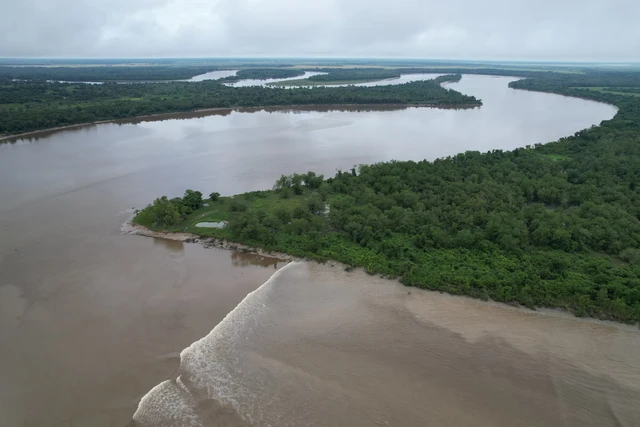
A drone view shows the thunderous pororoca tidal bore wave on the Mearim River, in the Amazon jungle, near the northern Brazilian city of Arari of Maranhao state, Brazil April 29, 2025. Photo: Reuters
Laus, who twice broke records for surfing the world's longest waves, fears that sea level rise and droughts fueled by climate change, as well as erosion from farming and dams, are upsetting the balance that unleashes the force of nature he spent years learning to ride.
Research shows climate change has made parts of the Amazon hotter and disturbed rain patterns that keep the water volume in its rivers steady.
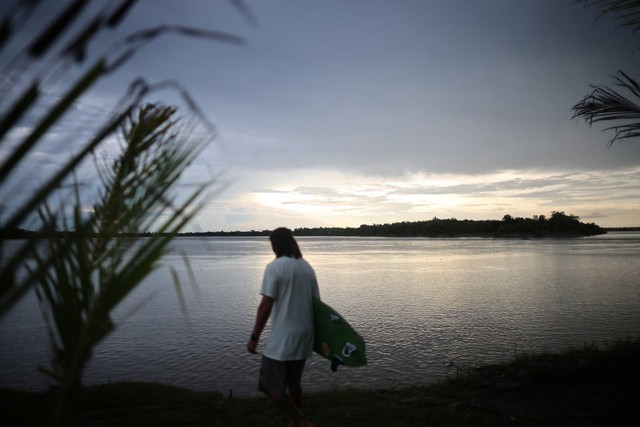
Brazilian surfer Sergio Laus stands after riding the thunderous pororoca tidal bore wave on the Mearim River, in the Amazon jungle, near the northern Brazilian city of Arari of Maranhao state, Brazil April 29, 2025. Photo: Reuters
Communities near the Mearim River have also noticed the sea reach further inland, creating sandbanks and forming new mangrove areas that block the ocean tide, said Denilson Bezerra, an oceanographer at the Federal University of Maranhao.
"We have felt the impact in the occurrence of the pororoca," he said. "But we still lack studies to establish the cause-and-effect relationship."
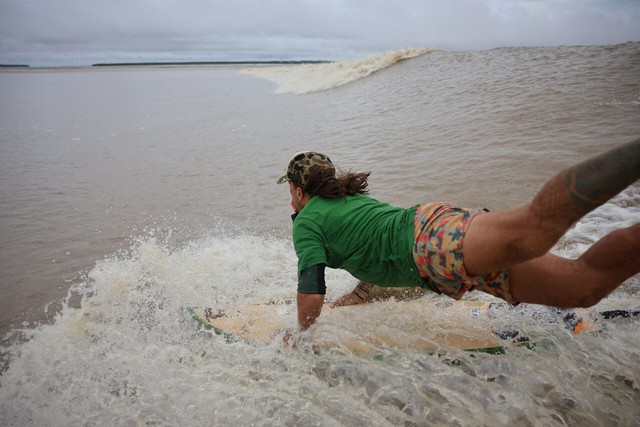
Brazilian surfer Sergio Laus rides the thunderous pororoca tidal bore wave on the Mearim River, in the Amazon jungle, near the northern Brazilian city of Arari of Maranhao state, Brazil April 29, 2025. Photo: Reuters
Laus has surfed pororocas all over the world, in Indonesia, China, and Alaska, and he plans to continue searching for new tidal bores around the Amazon, as well as Papua New Guinea and Canada.
"There are many pororocas that no one has ever seen," he said, adding that he still dreams of surfing "all the pororocas in the world."


Max: 1500 characters
There are no comments yet. Be the first to comment.